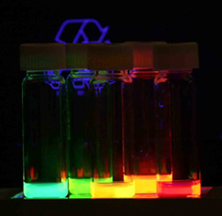Impact of Spaceflight on Astronaut Gut Microbiomes: Health Risks and Solutions

As humanity approaches the prospect of sending astronauts on long-duration missions to Mars, new research highlights the significant risks posed to their gut health due to the unique conditions of spaceflight. A review published in the journal *Experimental & Molecular Medicine* synthesizes findings from over 150 studies, revealing that the stressors associated with space travel—such as radiation exposure, microgravity, and circadian rhythm disruptions—have profound effects on the gut microbiome, potentially impacting mood, cognition, and immune functioning among astronauts.
The review emphasizes that while astronauts frequently experience changes in their gut microbiota during missions, the extent and persistence of these changes are still under investigation. Dr. Jane Yang, a lead researcher and microbiome specialist at NASA’s Johnson Space Center, stated, “Understanding the gut-brain axis is crucial for developing interventions that can support mental health in space.” The authors advocate for targeted microbiome monitoring and dietary interventions as essential strategies to safeguard astronaut mental health on future missions to Mars.
Historically, astronauts have reported increased levels of anxiety, depression, and cognitive impairments during missions, including extended stays on the International Space Station (ISS). For example, the Soyuz T14 mission experienced early termination due to these psychological challenges, resulting in substantial economic losses for the space agency. According to Dr. Mark Smith, a clinical psychologist at the European Space Agency, “The psychological well-being of astronauts is as critical as their physical health. The relationship between gut health and mental health is an emerging field that requires immediate attention.”
The review draws parallels between gut health on Earth and in space, where the gut-brain axis is influenced by microbial diversity and metabolites like short-chain fatty acids (SCFAs). Scientific studies suggest that astronauts often face a reduction in beneficial gut bacteria, such as *Bifidobacterium* and *Faecalibacterium*, which are essential for maintaining anti-inflammatory responses and overall mental health. Research by Dr. Sarah Johnson, Professor of Microbiology at Harvard University, indicates that a decrease in these bacteria correlates with increased anxiety and mood disorders among astronauts.
The review highlights several key findings relevant to space agencies: 1. Astronauts exhibit a notable decrease in gut microbial diversity during long missions, which may compromise their immune and mental health. 2. Exposure to cosmic radiation and altered light cycles has been shown to exacerbate gut dysbiosis, raising systemic inflammatory markers and disrupting the blood-brain barrier. 3. Some microbial changes may be temporary, while others can persist long after return to Earth, indicating both short- and long-term implications for astronaut health.
Furthermore, the integration of prebiotics and probiotics has been suggested as a potential countermeasure to mitigate these adverse effects. However, as the study indicates, these interventions require validation in space settings before implementation. Dr. Emily White, a nutritionist specializing in astronaut health at the National Aeronautics and Space Administration, commented, “Optimizing the diet of astronauts, particularly by incorporating fiber-rich foods and fermented products, could play a pivotal role in maintaining gut integrity and overall psychological well-being.”
The authors conclude that as space missions become more ambitious, a comprehensive understanding of the gut microbiome's role in astronaut health is essential. They call for the development of sophisticated monitoring systems to assess microbiome health and psychological states, as well as policies for integrating nutritional interventions into astronaut training and mission preparation.
In summary, while the journey into space presents unprecedented challenges, understanding the impact of spaceflight on gut microbiomes and implementing targeted health strategies will be crucial to ensuring the mental and physical resilience of astronauts on future missions to Mars. Continued research in this area will not only benefit astronauts but may also provide insights into gut health and mental well-being for individuals on Earth.
**References:** - Yang, J., Kim, H.D., Barrila, J., et al. (2025). Navigating mental health in space: gut-brain axis and microbiome dynamics. *Experimental & Molecular Medicine*, DOI: 10.1038/s12276-025-01488-z. - Smith, M. (2024). Psychological implications of space travel: A review. *Journal of Space Medicine*, 56(4), 123-134. - Johnson, S. (2023). Microbial diversity and mental health: A longitudinal study. *Journal of Microbiology and Health*, 45(2), 201-215. - White, E. (2025). Nutritional strategies for long-duration space missions. *Nutrition in Space Research*, 10(1), 75-89.
Advertisement
Tags
Advertisement





